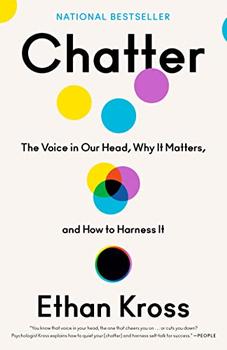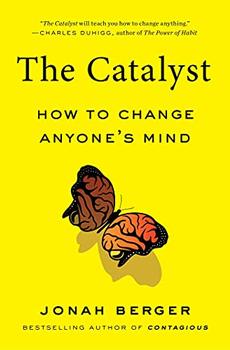Summary | Excerpt | Reading Guide | Reviews | Beyond the book | Read-Alikes | Genres & Themes | Author Bio

A Revolutionary Approach to Success
by Adam M. GrantAdam Grant's message to the capitalist world is, as he says, revolutionary: nice guys don't actually finish last. The catalog of case studies he lays out in Give and Take painstakingly uncovers the hidden fact that it's not the shark negotiators or the lone geniuses, or even the diva athletes, who enjoy the most resounding success over the life of their careers. It's the people who help, share, collaborate, and give.
Grant sorts people along a spectrum according to their generosity. "Givers" do more than just donate to charity; they give openly and freely of their time and resources to help other people. "Matchers" are more cautious, always on the guard to make sure they get as good as they give. "Takers," on the other hand, are the ambitious souls always looking out for their own good. In their rise to the top, they will grab every advantage they can, even at the expense of others. Grant exposes the weakness behind the American ideal of the relentless, bottom-line driven CEO. Enron's disgraced Ken Lay is the patron saint of takers. At the Wharton business school in the University of Pennsylvania, where he is the youngest tenured professor and single highest-rated teacher, Grant's message met with a tough reception at first. One student told him, "there aren't any givers at Wharton: givers study medicine or social work, not business." The idea of sharing contacts and making mutually beneficial business deals (not to mention environmentally and socially responsible decisions) could be a hard sell in the corporate world. Grant has the credentials and the data to make the sale.
Give and Take has useful information for everyone, not just venture capitalists and entrepreneurs. There are take-away messages for artists, athletes, teachers, and students. Grant offers advice for strengthening your "giver" skills, and strategies for avoiding the pitfalls that can steer natural givers toward burnout. By cultivating some of the wariness of matchers, givers can take care to protect themselves from con artists and those who would drain all their time and resources. According to Grant's paradigm, givers are not victims. They wield great power with their generosity.
I found myself hoping that corporations around the world are sitting down with Grant's book and engaging in his paradigm shift. His is a vision that deserves elaboration and an even broader application, in the work world and beyond. What does this new understanding of giving mean for modern women, who are still struggling to integrate traditional caregiving roles with high-achieving careers (and salaries)? Grant touches on the gender pay gap, but barely scratches the surface of tantalizing subjects like caregiver burnout or glass ceilings. People in traditionally more giving-focused spheres, working in non-profits or in the arts, could learn a lot from this emissary from Wharton. I was especially glued to his chapter on "The Ripple Effect," which pits the notion of the solitary genius against a more collaborative, synergistic artist. Guess who comes out on top in the long run.
I have one caveat about Give and Take. If, like me, you do not have an MBA, you may not be used to reading this style of prose. For the humanities major, parsing Grant's jargon-rich sentences can be like chewing rocks. To give you a bit of the stylistic flavor of the book, here is my favorite of Grant's toothsome pronouncements: "Chunking giving is an otherish strategy." Once you get the hang of his terminology, however, these opaque catchphrases can become mantras to repeat, or masticate, as you look around at your job or your life for ways to give more.
A website for the book has tools to evaluate your "giver" strengths and to nominate a giver of your choice.
![]() This review was originally published in The BookBrowse Review in July 2013, and has been updated for the
April 2014 edition.
Click here to go to this issue.
This review was originally published in The BookBrowse Review in July 2013, and has been updated for the
April 2014 edition.
Click here to go to this issue.

If you liked Give and Take, try these:

by Ethan Kross
Published 2022
An award-winning psychologist reveals the hidden power of our inner voice and shows how we can harness it to live a healthier, more satisfying, and more productive life.

by Jonah Berger
Published 2022
From the author of New York Times bestsellers Contagious and Invisible Influence comes a revolutionary approach to changing anyone's mind.
Your guide toexceptional books
BookBrowse seeks out and recommends the best in contemporary fiction and nonfiction—books that not only engage and entertain but also deepen our understanding of ourselves and the world around us.